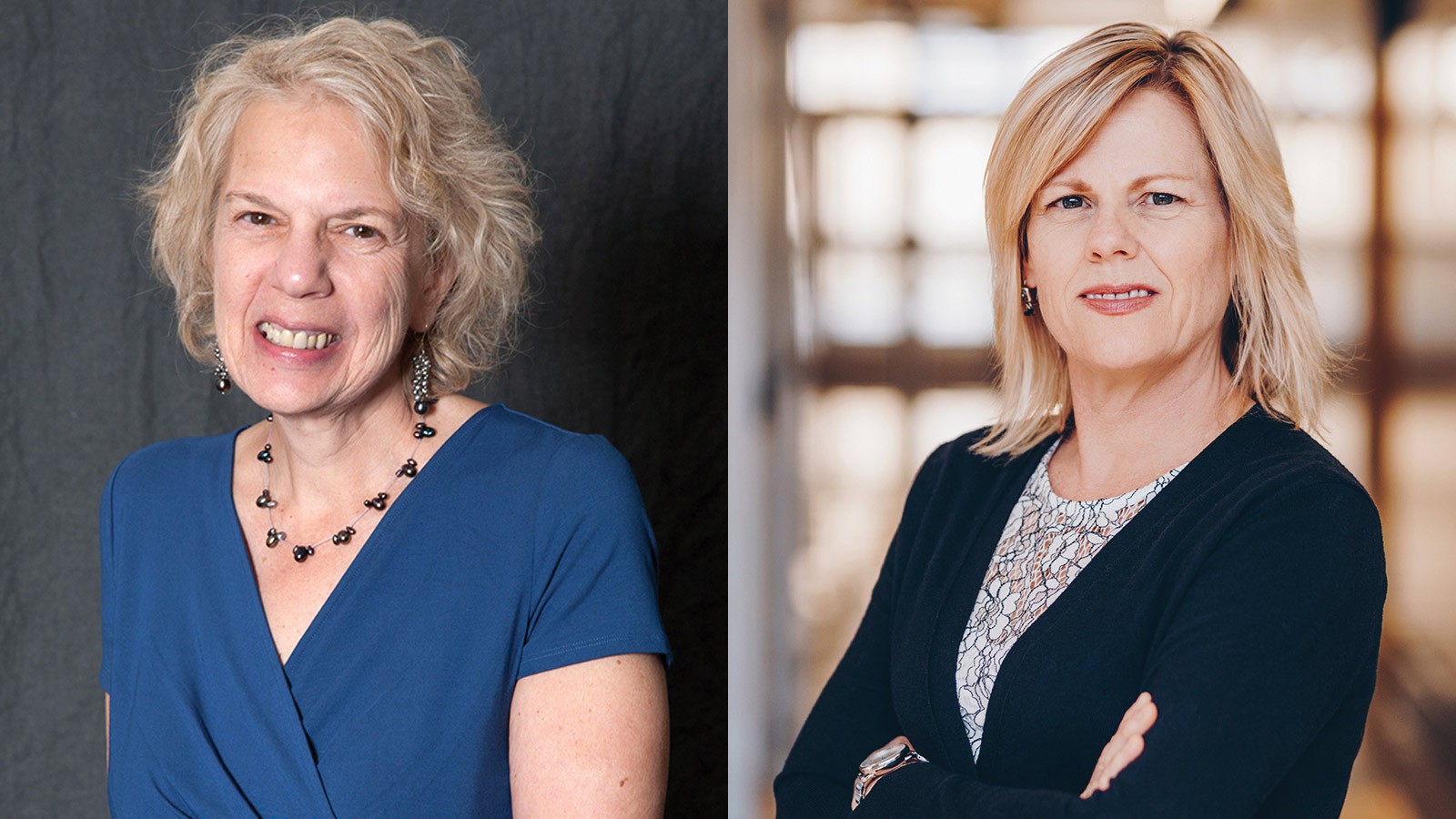Celebrating Pride: Caregiving Among Men Married to Men
Terry Peak (left) and Julie Gast have published numerous studies with men who are married to men to investigate the role of partner support and its relationship to health behaviors in the context of gay marriage.
To celebrate Pride Month in June, a Utah State Today series is highlighting university employees and students who are conducting research, academic pursuits and other projects related to or that benefit the LGBTQIA+ community.
Terry Peak:
Professor in Sociology, Social Work & Anthropology Department; Director of Social Work program
- Area of study: social work policy, healthy aging
Julie Gast:
Professor in Kinesiology and Health Science Department; Director of the Health Education and Promotion Master of Public Health program
- Area of study: health education and promotion
Why is this work important?
“There has been very limited research on the role of caregiving and health behaviors among men married to men specifically, and in LGBTQ+ populations generally. We are excited to be able to start to fill this research gap and hope to expand on this work in the future, addressing end of life issues as well as adding a consideration of women married to women into our future work.”
Summary of research
Terry Peak and Julie Gast have published numerous studies with men who are married to men to investigate the role of partner support and its relationship to health behaviors in the context of gay marriage. Their most recent publication involved interviewing older married male couples to explore the role of caregiving and health behavior work. Whereas health behavior work is often performed jointly in same-sex couples and connected to routine activities of daily living (e.g., “I nag you about your diet and you encourage me to engage in physical activity”), caregiving tasks may involve responding to more critical health needs with one person assuming the caregiver role and helping the individual who needs assistance with activities of daily living or a specific health need (e.g., medication adherence). In any case, recent research has found that caregiving in same-sex relationships is less tied to gendered role expectations and is more mutual and egalitarian.
Peak and Gast found three themes in their research: the health benefits of marriage, what constitutes caregiving and health care work in marriage, and the impact of caring for an ill or injured spouse on the marital relationship. Widespread among their sample was the response that being married or partnered made participants feel good about themselves in terms of well-being and feeling supported. The sample also voiced complete dedication to each other and each other’s health as well as to the tasks required to ensure future health. Participants paid attention to ordinary health behaviors such as physical activity and healthy eating, and influenced routine and non-routine medical encounters.
Because there has historically not been much recognition of the distinctive needs of LGBT older adults, this lack of recognition is coupled to a long history of overt service discrimination and social stigma for this community. While Peak and Gast’s sample of long-partnered couples did not appear bothered by their earlier lack of legal recognition and did not refer to any caring activities as unfairly burdensome in the study, it might be beneficial to reconceptualize spousal caregiving to acknowledge important differences and support the LGBT community’s many strengths and resilience.
Read more about the research here:
CONTACT
Emilie Wheeler
News Director
University Marketing and Communications
435-797-0744
emilie.wheeler@usu.edu
TOPICS
LGBTQIA+ 45storiesComments and questions regarding this article may be directed to the contact person listed on this page.







